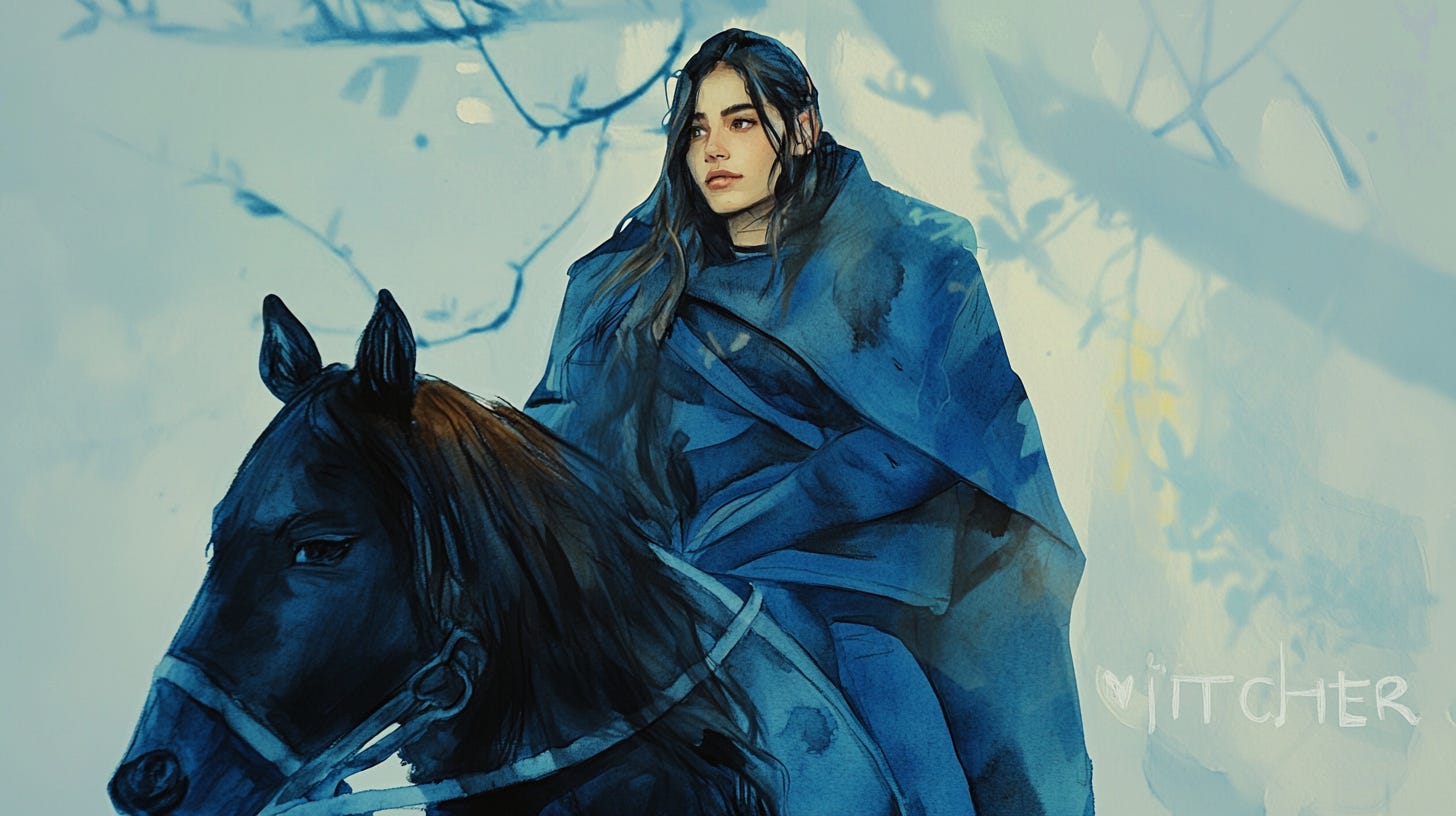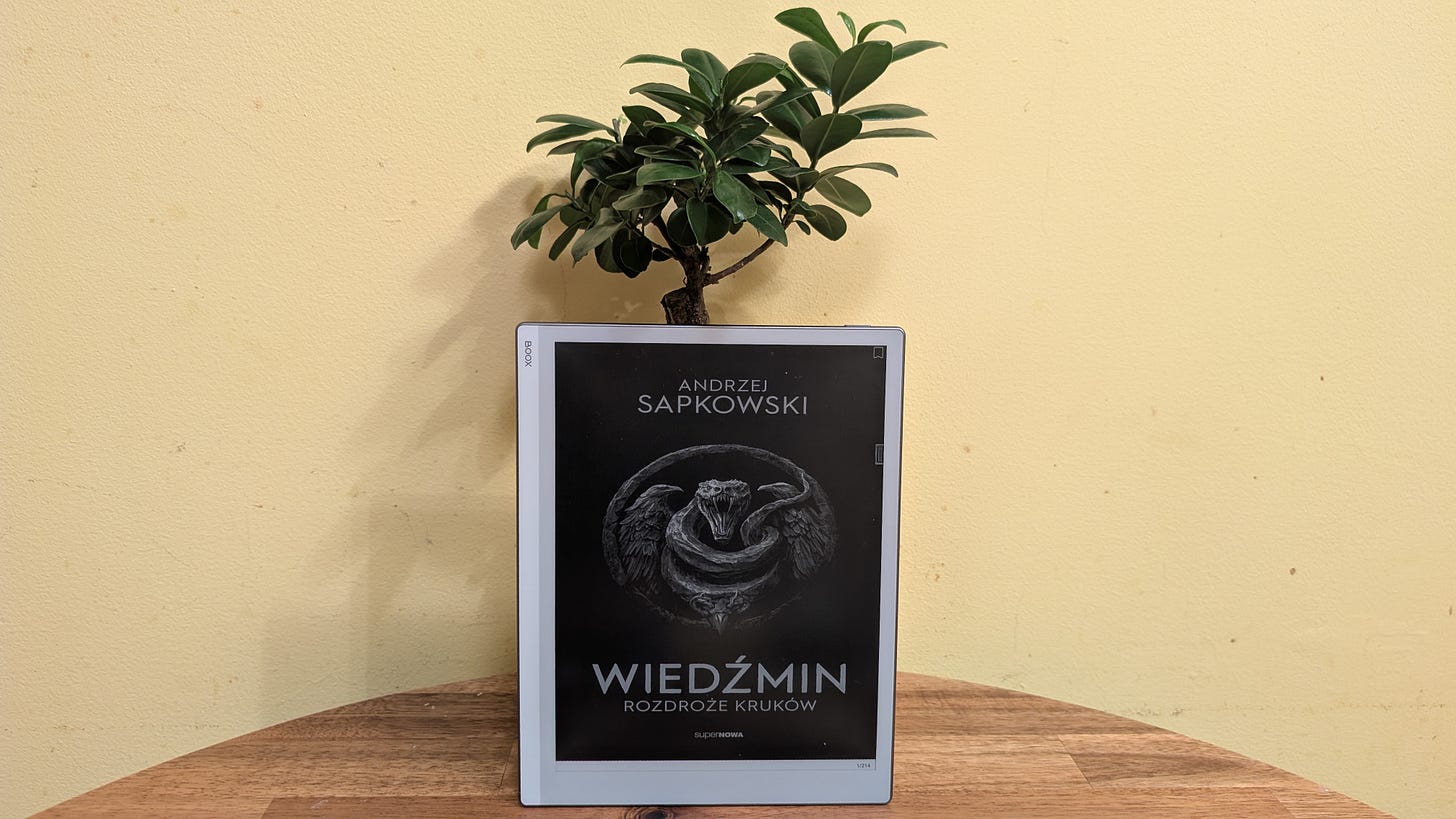I just finished the new Witcher book, Crossroads of Ravens. Here’s what I think
Don't mistake the stars reflected in a pond at night for those in the sky
I got hooked on Andrzej Sapkowski’s Witcher Universe back in school, and I can’t write enough lines here to sum up the wildly emotional experiences tied to these games. Their very first one was atmospheric. Some no-name Polish studio entered the game dev scene with two things—an intriguing title and a gripping storyline.
I have the fondest early memories of The Witcher. When we scraped together cash for a new PC that could barely run The Witcher 3, or how we jammed to bard tunes inspired by the game’s world and hit up LARP sessions to play out the roles of the book’s heroes. In recent years, we pinned our hopes on the Netflix series, then cursed the writers for butchering the lore.
The last time I replayed the third game was after the next-gen patch dropped. Even on the nth playthrough, I discovered fresh experiences, like the quirks of courting the fun, romantic Triss instead of the loyal but slightly dull Yen :)
So, I didn’t wait for a translation when Crossroads of Ravens hit Polish shelves. I grabbed the digital edition right away. Luckily, we’ve got plenty of decent machine translation tools in 2024, so with some trial and error, I got a version pretty damn close to the original in just one day.
The new installment is about Geralt’s adventures. Not exactly a shocker, but this time we see the Witcher from a new angle. It kicks off with a village elder interrogating an 18-year-old Caer Morhen grad who had the “nerve” to kill a soldier who tried raping a local girl.
The elder couldn’t care less about motives. He was just stoked to flex his authority over a “mutant.” Like any educated figure, he had read Monstrum or A Portrayal of Witchers. The latter being a lovely piece claims that all sorts of plagues—diseases, livestock dying, miscarriages, stillbirths, pest infestations—are the fault of the damned Witchers!
In this book, Geralt isn’t the world-weary, scarred, philosophical dude we all know and love. He’s 18 with naive views about life, and it’s a miracle he’s still breathing. He tries to reason with the elder by quoting the law, only to be told he can roll up that law and shove it into his ass. The local authorities and elders hold all the power here, so if Geralt wants to go “by the book,” he’d get 20 lashes for strolling into the village armed. Never mind that he was dragged in—not waltzing in—but, who cares about details?
Right in the middle of this charming convo, the killed soldier’s boss rolls onto the scene, and Geralt’s odds of survival immediately nosedive. The military guy isn’t settling for a whipping; he wants Geralt hung. Just when it seems like this might be the end, a Witcher who had been tracking Geralt shows up just in time to save him from a quick execution. This dude became Geralt’s second mentor after Vesemir—Preston Holt from the School of the Snake.
That was the end of chapter one, and I’ll stop spoiling now to keep the fun alive. Let me just say, Preston Holt is a pretty rad character and it’s partly thanks to these early lessons that Geralt became the fearless and resilient Geralt we know from the other books and games.
From there on out, we get a classic Witcher tale—tough calls, good and evil, nature’s balance, scumbags, and selfless heroes. Expect flashbacks and nods to the games. For example, the story of peasants attacking Kaer Morhen in 1194 unfolds across the book, giving it new layers until the end. And of course, no Witcher story would be complete without some romantic escapades!
The nods to the games are extra sweet given the rocky history between Sapkowski and CD Projekt Red. Once upon a time, Andrzej turned down a royalty deal with the then-unknown studio because he wanted cash upfront. After Witcher 3 blew up, he kicked himself, bashed the studio, and even threatened to sue. Eventually, they settled. I’m guessing the studio slid him a check big enough to soothe his wounded pride.
In his trademark style, Sapkowski weaves Geralt’s adventures together with vivid details of Kaedwen, where it all goes down. Each chapter is a fresh escapade, but near the end, they all click together like whimsical puzzle pieces.
As we go, we dig into new lore, like what’s up with the School of the Snake? The games introduced it but the previous books never mentioned it. Likewise, another small but juicy detail was revealed: why Geralt named his first horse “Roach”! Also, the book pumps up the Witcher bestiary quite a bit. Most monsters were brand new and debuted here, except for a striga and some water demons. Unfortunately, old faces from earlier novels barely show up. Just a couple of Vesemir mentions in passing; that’s it.
It was cool learning fresh details about how Witchers came to be. What experiments were done, who ran them, why did Geralt end up as one of the last monster slayers, and why did the trials fizzle out? I was also stoked to meet a namesake of mine—Timur Voronoff, Preston Holt’s agent. Early on, he hands Geralt instructions and some cash to get by, promising to help him score contracts for 10% of Geralt’s earnings in return.
Sapkowski wouldn’t be Sapkowski if the book was flawless. My editorial colleague, Pavlo, calls the Witcher series a “meh” example of Polish dark fantasy, insisting there are far better works. I disagree for the most part, but I do wish we got more insights into the world. A bunch of stuff you have to piece together from the games or fan digs, and the character letters that should ideally flesh out the setting, felt like a snooze sometimes.
The root of these issues is length. The book’s too short, which kills some narrative depth. Under 300 pages and just a few hours of reading feels like an adventure yarn than a full-blown novel.
Just as you’re getting into it, the show ends, the band bows and the stage lights go dark. After finishing, you’re left feeling a bit unsatisfied. It makes you want to reread the earlier stuff or jump back into Witcher 3: Wild Hunt for the umpteenth time (how many is too many?!).
On the flip side, thanks to the maestro for putting it out at all and promising another in two years (I have the urge to insert a George R.R. Martin joke here, but will hold back). This book leaves a mark. It’s not like those million faceless “modern culture” products you forget the second you finish. Andrzej throws us back to the good old times when “Books” were spelled with a capital ‘B’! Not random pulp clogging up Amazon’s shelves.
In my eyes, we’re running low on worthy stuff these days—games, books, bands, flicks. Junk culture marketplaces rule the day, and hitting the audience’s emotional buttons means millions of views in the bank. More so if your content is aimed at teens who don’t yet understand how big corps toy with their feelings for fat profits.
After 15 years in tech journalism, I’m beyond sick of companies bragging that their phone, laptop, TV, or whatever gadget is the year’s ultimate and offers a mind-blowing, more “productive” experience. I’m done with soulless games and cardboard-cut-out characters without a scrap of truth. I’m over movies with jokes so flat that no one laughs, but hey, at least no one’s offended. I’m tired of social networks where there are no friends; only toxic followers.
That’s why I appreciate real creations that come from the heart. Flaws and all, I devoured Crossroads of Crows and can’t wait for what’s next.





